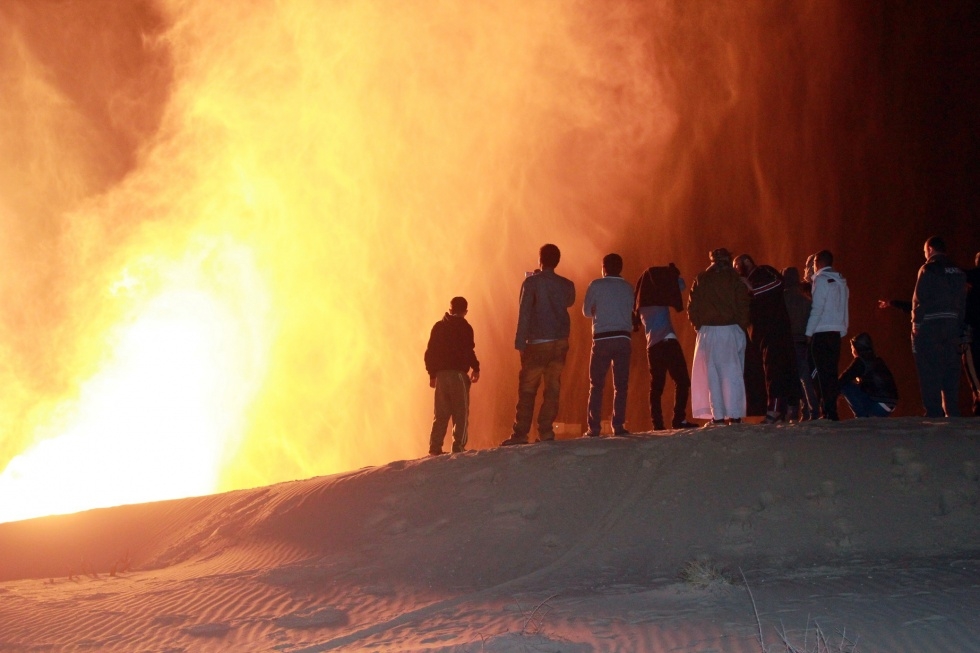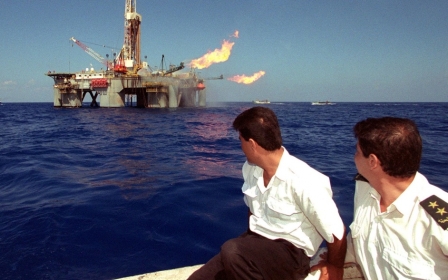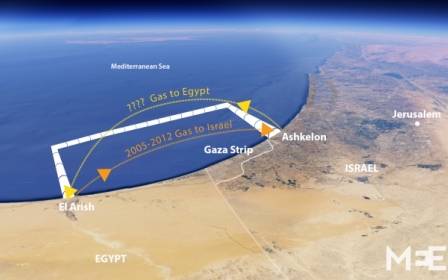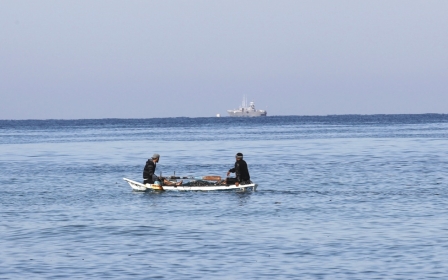BP announces $12 billion deal in Egypt’s gas fields

Egypt’s petroleum minister Sherif Ismail announced on Thursday that British Petroleum (BP) had signed an oil exploration agreement in Egypt’s gas fields with its Russian-owned partner DEA, in an investment worth $12 billion (11 billion euros).
BP has described the investment as a “vote of confidence” in the country.
“The WND (West Nile Delta) project investment is the largest foreign direct investment in Egypt,” said BP’s chief executive Bob Dudley in a statement. “WND production is key to Egypt’s energy security.”
Hesham Mekawi, BP’s North Africa’s regional president, said the agreements marked “a critical milestone in the Egyptian oil and gas history”.
“BP expects to double its gas supply to the Egyptian domestic market during this decade when the WND project reaches its peak production,” he said.
The gas would be delivered into the national grid, thus gradually helping Egypt to tackle its worst energy crisis in decades. Rising energy consumption and decreasing production have turned it from a net energy exporter to a net importer in the last few years, as persistent blackouts became more frequent.
Production from the project is expected to reach up to 1.2 billion cubic feet per day (bcf/d), which is equivalent to roughly 25 percent of Egypt’s current gas production.
Production for the significant increase to Egypt’s energy supply will begin in 2017, as five trillion cubic feet of gas resources and 55 million barrels of condensates is expected to be developed.
“The project underlines BP’s commitment to the Egyptian marker and is a vote of confidence in Egypt’s investment climate and economic potential,” said the oil and gas company in a statement. The project will also employ thousands of people during its construction phase, BP added.
Gas will be produced by two BP-operated offshore blocks in North Alexandria and West Mediterranean Deepwater, with a potential for future exploration.
BP holds a 65 percent stake in the project, while DEA, which used to be part of German power giant RWE before being recently sold to a Russian-controlled investment fund, owns the remaining 35 percent.
The natural gas off the coast of Egypt was discovered seven years ago. The deal will be a welcome relief to the country, whose energy production has fallen since the 2011 uprising against former president Hosni Mubarak. The country was forced to import liquefied natural gas which has been straining Egypt’s finances.
New MEE newsletter: Jerusalem Dispatch
Sign up to get the latest insights and analysis on Israel-Palestine, alongside Turkey Unpacked and other MEE newsletters
Middle East Eye delivers independent and unrivalled coverage and analysis of the Middle East, North Africa and beyond. To learn more about republishing this content and the associated fees, please fill out this form. More about MEE can be found here.




